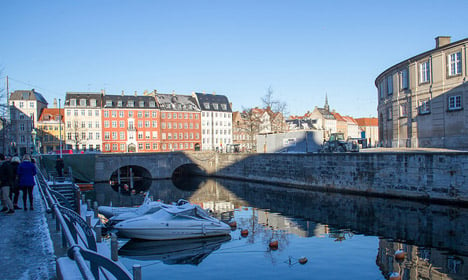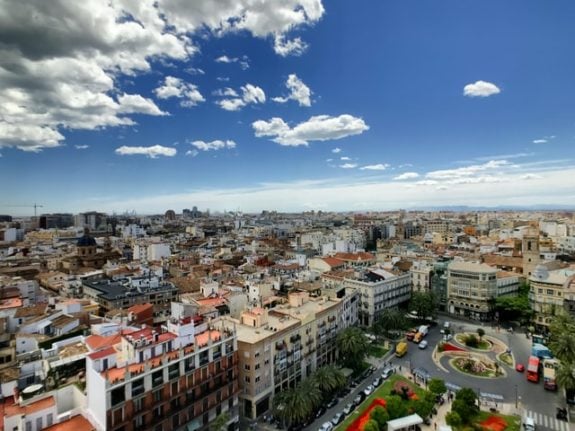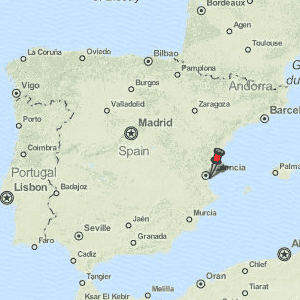 Melanie Haynes is originally from the UK and has lived in Copenhagen for eight years. She writes about life in Copenhagen on her blog Dejlige Days and runs a settling-in service aimed at expats called Dejlige Days Welcome.
Melanie Haynes is originally from the UK and has lived in Copenhagen for eight years. She writes about life in Copenhagen on her blog Dejlige Days and runs a settling-in service aimed at expats called Dejlige Days Welcome.EXPAT
Drop ‘us and them’ and embrace new life abroad
In the first edition of a new regular feature on The Local, relocation expert Melanie Haynes writes that expats should learn to adapt rather than brood over the lack of comforts they left at home.
Published: 2 December 2015 06:58 CET

Photo: CucombreLibre/Flickr
One of the biggest factors in expats struggling to settle in a new country is the negative feeling that the country’s native residents represent a 'them' – some kind of very different and not always positive ‘other’, aliens who are strange and simply don't understand how things should be done.
There is often chatter in expat forums when someone asks where to buy something or do something and rather than offer advice or solutions (which are always there) there is instead a dismissal of the Danes and their ways of doing things.
Of course it is human to notice the differences between cultures and ways of doing things – it is one of the biggest sources of inspiration for me in what I write about. I love to share the intricacies of my adopted country but I understand that they have a place here and are often rooted in long traditions or adapted to suit the environment or culture of a country. There were many aspects of the way of life in Berlin that I hated but I understood where it had come from, it didn't make it easier to bear but less of a mystery. I also found a lot of it fascinating – for example the New Year’s Eve tradition of a kind of Russian Roulette with doughnuts. All but one contain jam and the final one mustard – oh, the hilarity of it! But it gives an insight into the humour of the country.
I find the use of 'they do this' remarks about the Danish way of life, usually followed by either a direct or implied criticism, a little hard to take. It may just be semantics but why not say 'its a tradition in Denmark to …..' or ‘Danes generally do….' This shows an understanding of a different way rather than objecting to the fact it’s not your way.
When choosing to move to a new country, it is important to keep your own identity and traditions but also you need to adapt. Perhaps you can't buy the exact type of Christmas tree you would buy in America (or wherever) but you can buy one (I personally prefer the Danish style of Christmas tree). The national diet may not include your country's festive food but it is delicious nonetheless, and in my experience a lot nicer than what we generally eat in the UK at this time of year. Turkey for Thanksgiving and Christmas can be tough to find so why not eat duck or goose instead. I miss things like barrels of Twiglets at Christmas but the wide array of Christmas cookies here makes up for it.
Sometimes it can be hard to look beyond your own resentment over the changes in your life as an expat, but I know from experience that this can really impact your ability to settle in to a new country.
In researching a chapter for my forthcoming ebook I asked other expats from various countries to tell me their one tip to help other expats in settling in a new country. One Australian guy said this:
“Don’t try to recreate your home country in your new place of residence. Don't try to achieve the house you have at home and the food you have at home because it stops you from being flexible with what's available to you. Pay attention to the way things are done in the environment around you because they usually have evolved over a long period of time for a reason.”
I would go further and say that a negative mindset stops you from really embracing your new home. You should also bear in mind that 'they' probably have some thoughts about you and your ways too. Many expats don’t plan to stay in a country long-term, so embracing and enjoying the differences leads to a much happier journey with fewer bumps in the road.
 Melanie Haynes is originally from the UK and has lived in Copenhagen for eight years. She writes about life in Copenhagen on her blog Dejlige Days and runs a settling-in service aimed at expats called Dejlige Days Welcome.
Melanie Haynes is originally from the UK and has lived in Copenhagen for eight years. She writes about life in Copenhagen on her blog Dejlige Days and runs a settling-in service aimed at expats called Dejlige Days Welcome.
Url copied to clipboard!






 Please whitelist us to continue reading.
Please whitelist us to continue reading.
Member comments